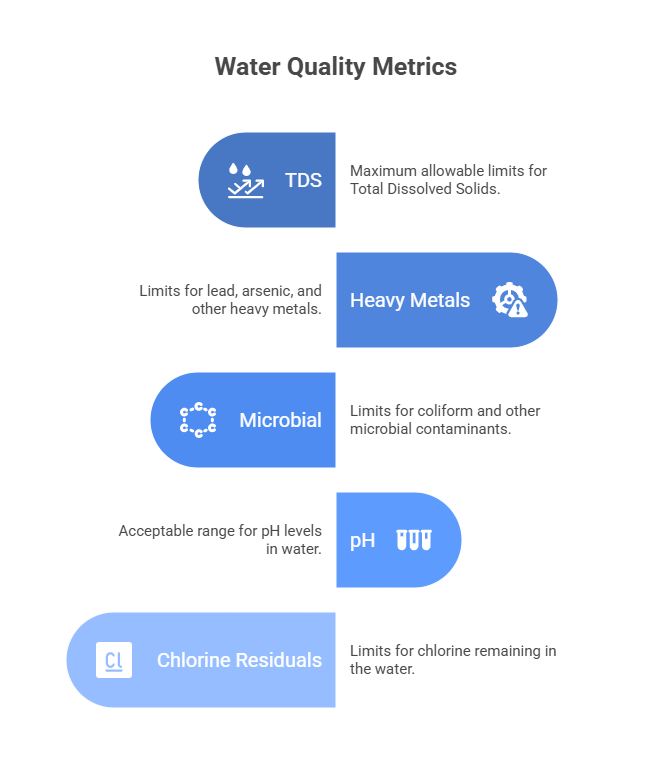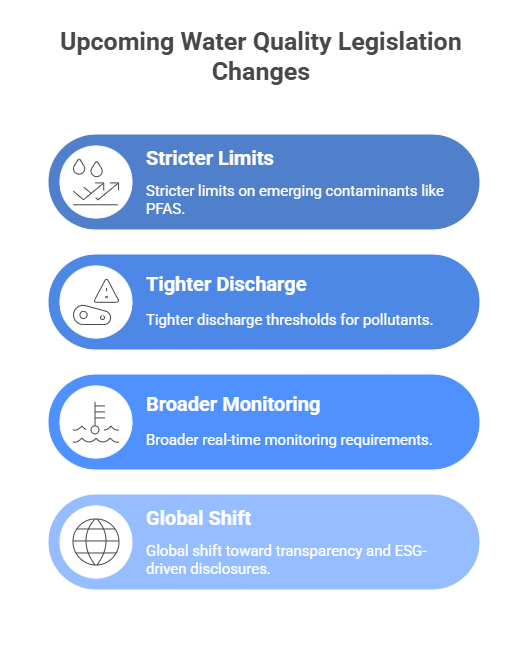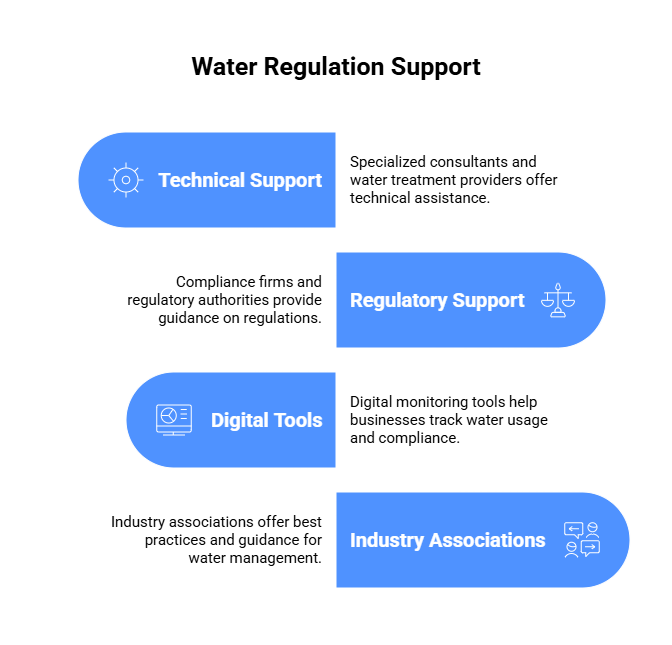Frequently Asked Questions
What are the current water quality standards for commercial applications?
Standards vary by region and application, covering limits for TDS, heavy metals (lead, arsenic), microbial indicators, pH, chlorine residuals, and discharge parameters.

How do regional regulations affect water treatment requirements?
Local authorities may impose stricter contaminant limits, monitoring frequency, reporting obligations, or mandated treatment technologies that businesses must comply with.

What penalties can businesses face for non-compliance with water regulations?
Penalties may include fines, legal action, forced shutdowns, mandatory remediation, reputational damage, and increased regulatory oversight.
How often must commercial water systems be tested?
Testing frequency depends on regulation and use, ranging from continuous monitoring and weekly microbiological testing to monthly chemical analysis and annual audits.
What documentation is required to demonstrate water quality compliance?
Documentation typically includes test records, calibration certificates, maintenance logs, laboratory reports, validation documentation, and audit trails.
What support is available for businesses navigating water regulations?
Support is available through regulatory consultants, certified laboratories, water treatment providers such as AQUAPHOR Professional, digital monitoring tools, and industry associations.



